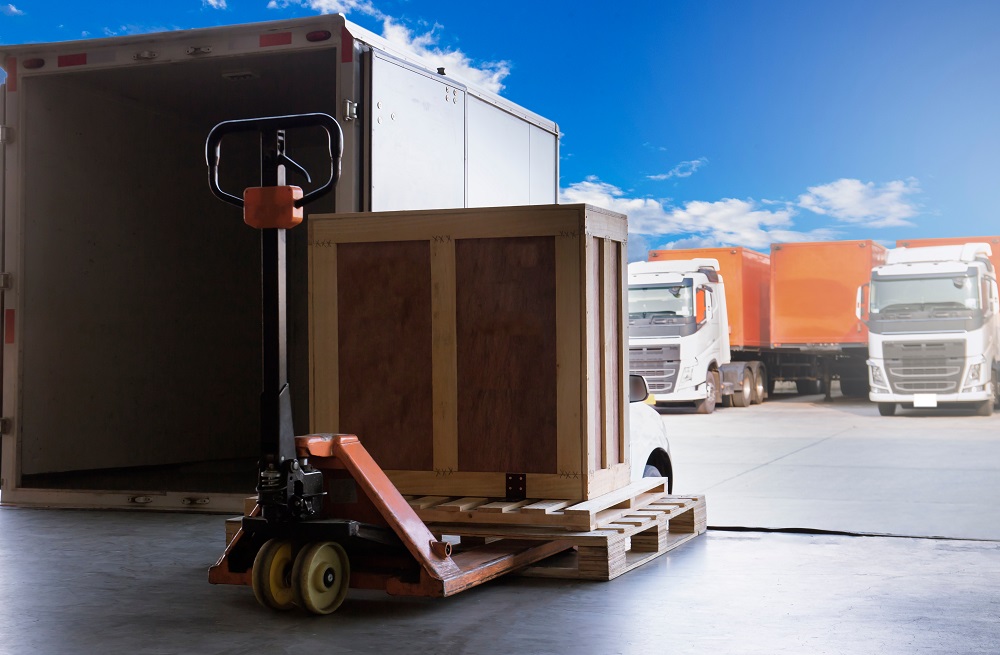Lately, as you pay the fuel bills for your shipping fleet or negotiate with your carriers, you may find that the prices leave you with a headache. Transportation costs are rising across the supply chain and are higher than they’ve been in a long time. In the transportation industry, there’s currently a perfect storm of truck driver shortages, new electronic monitoring systems enforcing fewer miles per day for individual truckers, and lower rail freight capacity. The result is a spike in the cost of shipping goods and products to manufacturing centers and retail outlets.
These higher transportation costs apply to every leg of a product’s journey through the supply chain. To compensate for increased costs, many companies have raised or are considering raising the price of their products, potentially driving customers to competitors. A better approach to this crisis is to increase transportation efficiency instead, offsetting rising shipping costs with savings gleaned elsewhere in order to keep prices low and retain customers. Let’s look at a few practical ways to make shipping goods more efficient.
Reducing Supply Chain Transportation Costs
With an industry-wide driver shortage and universal higher shipping prices, reducing transportation costs in the current market is a challenge. In most cases, the easiest way to maximize your return on transportation spending is to reduce fuel costs. You can do this by:
- Monitoring Drivers: The majority of fuel waste is due to the operator. Freight drivers tend to be in a hurry, and excessive speeds waste fuel. Instituting limitations can increase the average fuel mileage for semi-trucks.
- Optimizing Routes: Carefully calculating shipping routes for each load reduces the miles covered, lowering total fuel consumption.
- Reducing Weight: Reducing the weight of product loads and vehicles means that they require less energy to get up to highway speeds and maintain them, reducing fuel consumption for each mile covered.
The first two solutions are already widely used by transportation companies, and if you’re a company that maintains its own transportation fleet, then odds are good that you are already in the habit of monitoring your drivers and optimizing your routes. What about reducing load weights? This isn’t as common, but it shouldn’t be overlooked.
Both for loads that weigh out and cube out, a lighter shipping platform will ultimately result in greater efficiency and fuel savings.
Heavier products cause trucks to ‘weigh out,’ meaning that the maximum load of the truck is reached before its volume is completely filled. It’s difficult to find a weight saving when a product ships by weight, but reducing the weight of packaging and transport equipment can result in more product shipped per run, making each run more efficient. In loads that are cubed out–meaning they ship when the volume of the trailer is full–reducing packaging weight can lighten the entire load and yield a net fuel savings on the cost of the journey. For both loads that weigh out and cube out, a lighter shipping platform will ultimately result in greater efficiency and fuel savings.
Improving the Average Fuel Mileage of Semi-Trucks with Lighter Weight Pallets
Eighty percent of goods in the U.S. are shipped to market on pallets. Often these are reusable wood pallets made of boards nailed to four-inch-square wood blocks. Wood pallets are less than ideal for several reasons, but one of the biggest is their hefty and variable weight. The weight of a reusable wood block pallet starts at 70 pounds, but depending on how much moisture it has absorbed, it can weigh as much as 80 pounds. Depending on how they’re arranged (and assuming the trailer cubes out rather than weighing out), a 48-foot trailer can hold anywhere from 24 to 28 GMA-spec pallets. This means that for one load of product, the associated pallet weight could be anywhere from 1,680 to 2,240 pounds, depending on how much moisture the pallets have absorbed and the way the pallets are loaded in the trailer.

Transporting up to two thousand pounds in weight that isn’t sellable product is a poor investment. Such a large variation in weight also means that companies must build in a margin to take into account the possibility of the pallets’ weight changing. This means that loads shipped on wood pallets rarely weigh out, making the transportation process inefficient and ultimately more expensive. Switching to a platform that weighs less and does so consistently allows companies to ship more product and come closer to the weight limit, reducing the number of runs trucks must make to transport product and thus saving on fuel costs.
The simplest way to reduce shipping pallet weight is to choose durable, reusable plastic pallets instead of wood ones.
Companies shipping products that cube out will find the weight of these loads reduced by a thousand pounds or more per trailer when plastic pallets are used. For these types of loads, using a lighter weight shipping platform can actually reduce the weight of each load without reducing the amount of product shipped. This results in an increase in the average fuel mileage for semi-trucks shipping the product. Ultimately, this causes a reduction in your Total Cost of Business (TCOB) that adds up substantially over time.
The simplest way to reduce shipping pallet weight is to choose durable, reusable plastic pallets instead of wood ones. Plastic pallets weigh up to 30 pounds less than wood ones and don’t absorb moisture that can increase their weight. Using plastic pallets to load that same 48-foot trailer leads to a total pallet weight per load of 1,164 to 1,385 pounds, depending on whether the pallets are turned or not. The result is a weight reduction of 516 to 855 pounds per load, which will improve the average fuel mileage of a semi-truck on every part of the journey, reduce your company’s TCOB, and help you keep your products competitively priced.
The iGPS pallet pooling program provides a GMA spec plastic pallet that’s as lightweight as it is sturdy. To reduce fuel consumption in your supply chain with the intelligent choice, give our team a call at 1-800-884-0225, email a specialist at switch@igps.net, or visit our contact page.
Image 1: Unsplash user Orlando Leon



